#Palan-díriel
Explore tagged Tumblr posts
Text
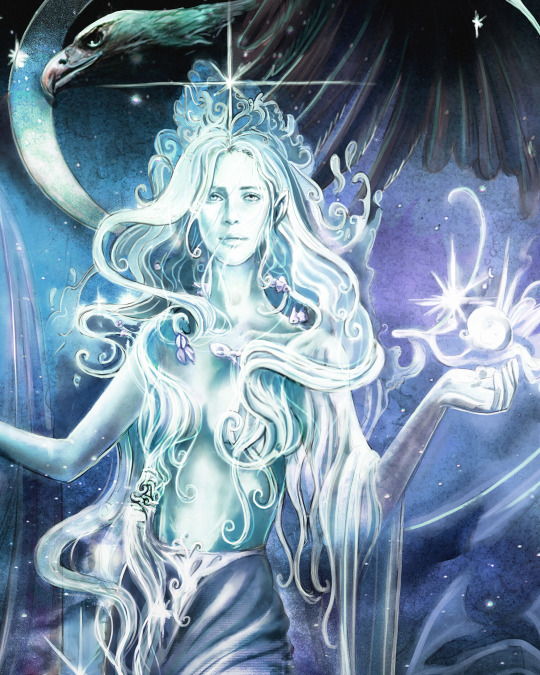
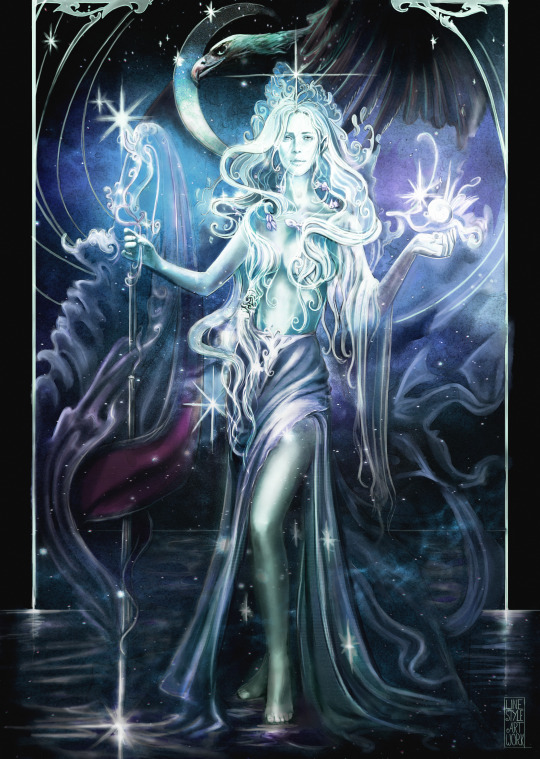
"A Elbereth Gilthoniel"- personal art 2021 (available as print in my shops: https://linktr.ee/l )🧝♀️🌟
'A Elbereth Gilthoniel silivren penna míriel o menel aglar elenath! Na-chared palan-díriel o galadhremmin ennorath Fanuilos, le linnathon nef aear, si nef aeron!'
#tolkien#illustration#art#middleearth#lotr#artistsofinstagram#varda#elvesofinstagram#artist#artwork#annajägerhauer#linestyleartwork#silmarillion#elves#light#stars#night#drawing#sketch#herrderringe#deviantart#jrrtolkien#artistsontumblr#elvesontumblr
203 notes
·
View notes
Text
I'm breaking with tradition to celebrate the first anniversary of the Watermill Theatre's production of The Lord of the Rings: A Musical Tale! This production was so full of heart and creativity, it was impossible not to be moved by it.
For the anniversary, @lotrmusical created a wheel of prompts based on people's favourite aspects of the production, and the prompt I got was "STAR OF EÄRENDIL ACAPELLA MOMENT. CHILLS FOREVER". So I've recorded the last few verses of the song "Star of Eärendil", which takes place as the Fellowship assemble to leave Rivendell - including the moment where (in the Watermill production) the instruments drop out and only the voices remain. That moment gives me chills too, so I hope I've done it justice!
Lyrics (and a note on the pronunciation of Eärendil) under the cut.
Lead us ever onward, our weary hope sustaining
Now strengthen our endeavour, our purpose unite
Clothe us in your courage, your hope become our armour
(Eärendil Elcirion mi giliath)
Your wisdom be our banner of light
(Chaered palan-díriel, aiya, aiya!)
Elbereth Gilthoniel, look down, hear our cry
(Elbereth Gilthoniel)
May the stars that once you kindled ever burnish the sky
(Star of Eärendil)
Shining ever bright, your hope and your healing light
Guide our way and aid us from on high
O Elbereth
Hear our cry!
On pronouncing Eärendil "Yarendil": this is an innovation from the musical, which views itself as a production put on by hobbits to remember the stories they've inherited. So you can assume this is a hobbit mispronunciation, or you can see it as a legitimate variant (the dialectal form "Yarendl" is attested: see Qenya Lexicon 105). Either way, don't sweat it.
#watermill anniversary creative celebration#tolkien#lotr musical#arwen evenstar#eärendil#fellowship of the ring#rivendell
42 notes
·
View notes
Text
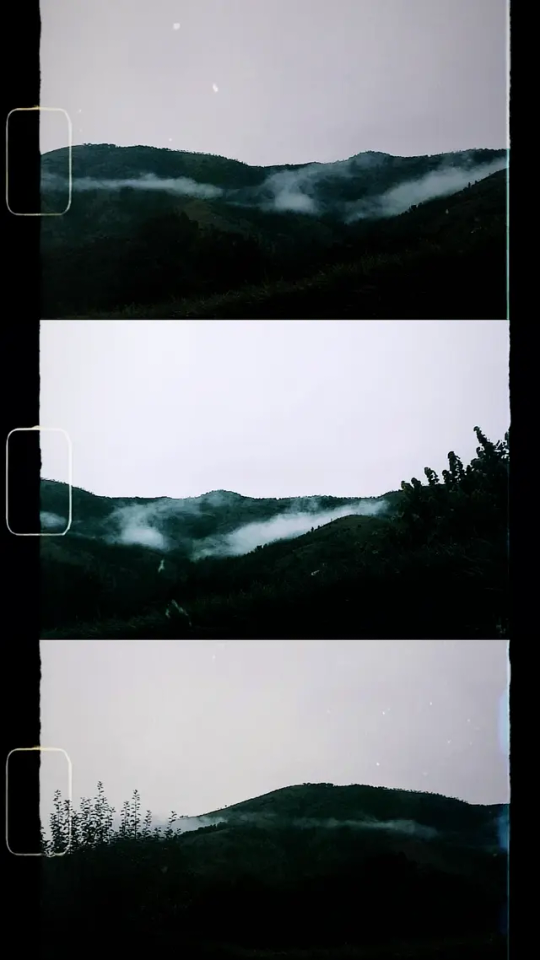
A Elbereth Gilthoniel
silivren penna míriel
O menel aglar elenath!
Na-chaered palan-díriel
o galadhremmin ennorath,
Fanuilos, le linnathon
nef aear, sí nef aearon!
A Elbereth Gilthoniel
o menel palan-diriel,
le nallon sí di'nguruthos!
A tiro nin, Fanuilos!
This is the Mother Mountain behind my Home and when I got out this afternoon I felt amazed watching the light and the mist around me and I truly felt like I had stepped into the mythical word (or maybe all of our planet looked like this) and I really wanted to take a picture, so here it it is alongside Varda's hymn because she is the best and I love her so much 💙
14 notes
·
View notes
Text
[Audio description: a recording of me singing outside. The tune is in a minor-like key and is reminiscent of medieval plainchant. The lyrics are as follows:
A Elbereth Gilthoniel
Silivren penna míriel
O menel aglar elenath
Na-chaered palan-díriel
O galadhremmin ennorath
Fanuilos, le linnathon
Nef aear, sí nef aearon!
End audio description.]
live to you from my back alley: a elbereth gilthoniel!
#lotr newsletter#i recorded and am posting this in the evening time after i ate dinner so i'm really leaning into the immersion with this one#i have thursday off so never fear!! earendil will come to your dashboard shortly#this one was just way easier to record after my long long day of sadly not having an epic rager at elrond's house
3 notes
·
View notes
Text
Given that Denethor was known for having long sight, and knowledge of events that happened far off long before his use of the palantir was known of I headcanon that he was often known by the epithet "gwahaedir" or "palan-díriel", the sindarin equivalents of palantir (far-seer). I think Denethor would have liked this, but I enjoy the Tar-Palantir parallel as well.
2 notes
·
View notes
Text
The Strength to Dream
Lyrics: Lately I feel I'm going under, And sometimes I don't want to see tomorrow. All I need is to hold the dream, just to touch the dream, Can it ever happen? Oh, your true sincerity, your kindness, means so much to me; But sometimes it feels like nothing is real except this pain and dark uncertainty.
Lately I've been feeling more like giving it all away; There's been a black cloud over me and now I feel the rain. My dreams never seem to lead me to the open road; And cracks have slowly begun to show in the bridge from here to my only goal.
In the ebb of my mind I try to climb the tower of strength What can fill this cold empty void of what I fear will never be? I find that I follow pathways that lead me nowhere.
The truth is I am chained to my ideals, and I can't change it; But something in me yearns to win; I know real love is there to find us. If I ever stop believing I'll always find the strength to dream. But for now depression smiles down upon me; Oh, what I would give to know you.
A Elbereth Gilthoniel silivren penna míriel o menel aglar elenath! Na-chaered palan-díriel o galadhremmin ennorath, Fanuilos, le linnathon nef aear, sí nef aearon!
1 note
·
View note
Photo
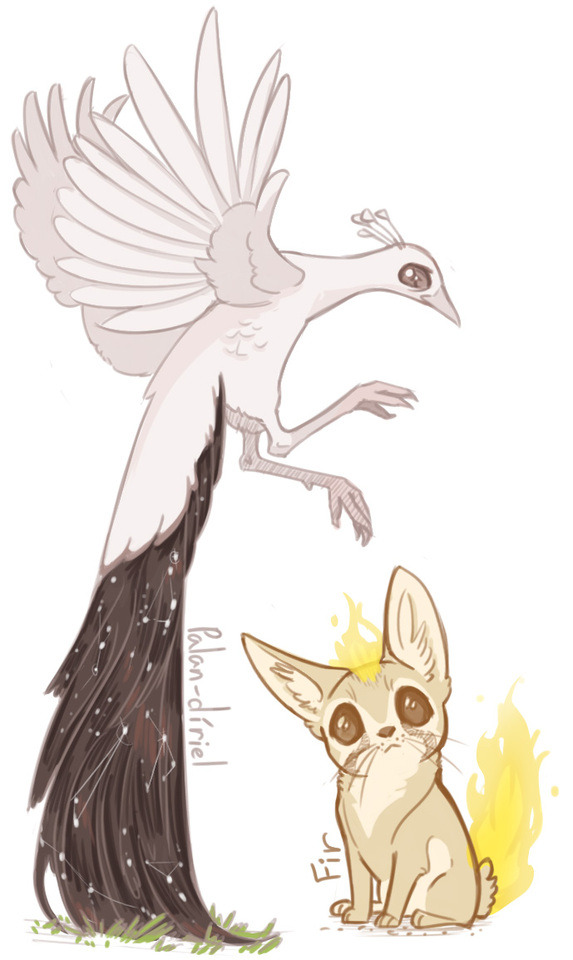
More Fir, and also my heaven shaman’s familiar, Palan-díriel :>
#Sovenasart#Pathfinder#Shamans#Shaman familiars#Familiars#Some precious babs who must be protected#Fun fact palan-díriel is an elven word for Far-gazer#Which I thought was appropriate for a heavens shaman familiar whose tail doubles as a star map#Gazing up far into the stars#And Fir is just short for Fire :y#Fir#Palan-díriel#Palan-diriel#In case I'm lazy when I look him up later.#Shaman names as well just in case#Elemmiire#Wysiir
7 notes
·
View notes
Photo
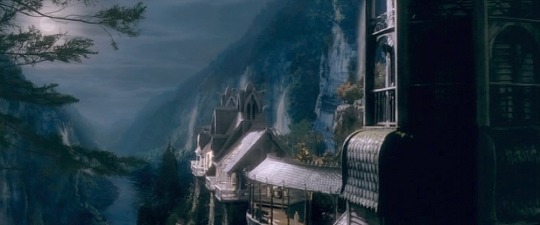
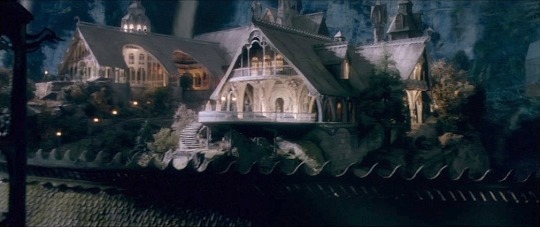
Good night, Frodo!
Bless me, but it has been good to see you again! There are no folk like hobbits after all for a real good talk. I am getting very old, and I began to wonder if I should ever live to see your chapters of our story. Good night! I'll take a walk, I think, and look at the stars of Elbereth in the garden. Sleep well!'
A Elebereth Gilthoniel silivren penna míriel o menel aglar elenath! Na-chared palan-díriel o galadhremmin ennorath Fanuilos, le linnathon nef aear, si nef aeron!
JRR Tolkien recites the Elvish hymn to Varda (translation)
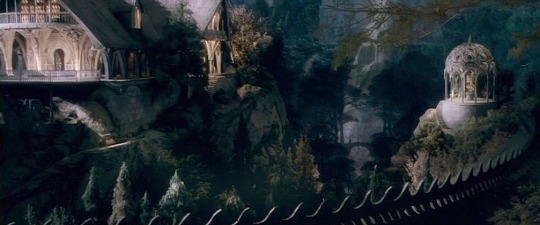
JRR Tolkien, The Lord of the Rings, The Fellowship of the Ring, Flight to the Ford, Many Meetings
#the lord of the rings#the fellowship of the ring#many meetings#jrr tolkien#bilbo#frodo#rivendell#imladris#poetry#elbereth#gilthoniel#varda#elvish hymn#audio#movie pics#peter jackson
8 notes
·
View notes
Photo
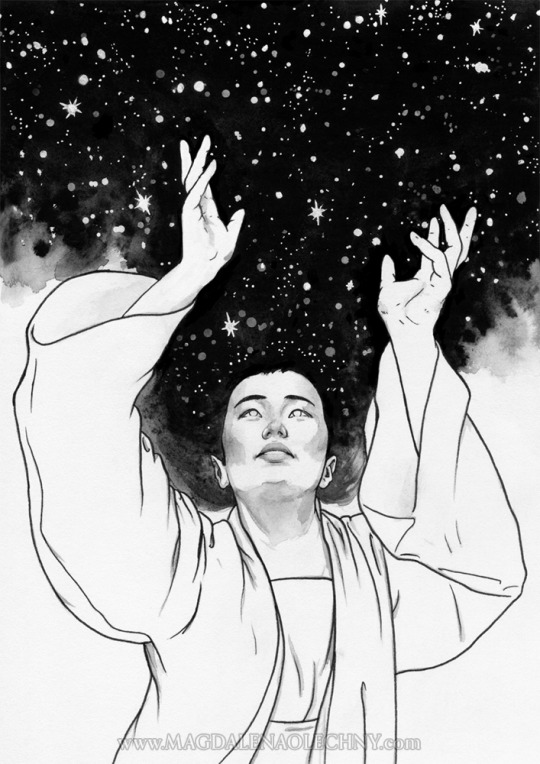
A Elbereth Gilthoniel silivren penna míriel o menel aglar elenath! Na-chaered palan-díriel o galadhremmin ennorath, Fanuilos, le linnathon nef aear, sí nef aearon!
The Lord of the Rings, J.R.R. Tolkien
www.magdalenaolechny.com
308 notes
·
View notes
Photo






A Elbereth Gilthoniel silivren penna míriel o menel aglar elenath! Na-chared palan-díriel o galadhremmin ennorath Fanuilos, le linnathon nef aear, si nef aeron! -Varda/Tolkien Fanart- -personal artwork 2021 - Visit me on my website: www.linestyle-artwork.de Instagram: https://www.instagram.com/linestyle_artwork/ Facebook: https://de-de.facebook.com/AnnaJaegerHauer Deviantart: https://www.deviantart.com/linestyleartwork Twitter: https://twitter.com/AnnaJaegerHauer Tumblr: https://www.tumblr.com/blog/view/linestyleartwork
#tolkienfanart#tolkien#illustration#annajägerhauer#linestyleartwork#art#middleearth#mittelerde#varda#elbereth#lotr#artistoftumblr#artistsofinstagram#valar#goddess#elvesoftumblr#elvesofinstagram#artist#artwork#silmarillion#elves#light#stars#night#drawing#sketch#herrderringe#deviantart#jrrtolkien
170 notes
·
View notes
Text

A Elbereth Gilthoniel
Silivren penna míriel
O menel aglar elenath!
Na-chaered palan-díriel
O galadhremmin ennorath,
Fanuilos, le linnathon
Nef aear, sí nef aearon!
A Elbereth Gilthoniel
O menel palan-diriel,
Le nallon sí di'nguruthos!
A tiro nin, Fanuilos!
O Elbereth Starkindler
White-glittering, slanting down sparkling like a jewel,
The glory of the starry host!
Having gazed far away
From the tree-woven lands of Middle-earth,
To thee, Everwhite, I will sing,
On this side of the Sea, here on this side of the Ocean!
O Elbereth Starkindler,
From heaven gazing afar,
To thee I cry now beneath the shadow of death!
O look towards me, Everwhite!
واردا النتاری که الدار البرت صداش میکنند و بیشتر از هرکدام از والار و حتی ارو براش دعا میکنند. (بی دلیل نیست اورومه این اسم رو روی الفها گذاشت. الدار یعنی مردمان ستاره)
واردا همهی ستارگان رو آفرید، نور لامپهای اورمال و ایلوئین از واردا بود و با نور شبنم های دو درخت ستارگان پر نور تر و مهمترین صور فلکی رو خلق کرد. در نهایت از آخرین شکوفه و میوهی دو درخت خورشید و ماه رو آفرید (با زحمت آئولهی شریف که دستاش نمک نداره)
واردا زیباترینه، انقدر زیبا که زیباییاش دهشت و ترسناکه (نهایت آرزوی گالادریل با وسوسهی حلقه همچین چیزیه)
جالبه که واردا کمتر از بقیه آرتار با زندگی الف و انس کار داره و در عین حال محبوبترینه. با کمترین تلاش!
ملکهی مقتدر آردا، ملکور هم حتی سر به سرش نمیذاره. بدون اینکه درگیری داشته باشن خود ملکور ازش دوری میکنه.
#varda#varda elentari#manwe sulimo#tolkien legendarium#tolkien#silmarillion#the lord of the rings#queen of stars#my art#fanart#fantasy#sketch#drawing#art#digital art#pixlr#doodle#hedy lamarr
140 notes
·
View notes
Text

A Elbereth Gilthoniel
silivren penna míriel
o menel aglar elenath!
Na-chaered palan-díriel
o galadhremmin ennorath,
Fanuilos, le linnathon
nef aear, sí nef aearon!
364 notes
·
View notes
Text
The Most Beloved Star
(my quest to revive the Barduil fandom continues... oops)
Bard has spent his whole life looking up at the stars and wondering what it would be like to look down upon the world. Wondering what it would be like to be so far removed from all the troubles that come with inhabiting a world that’s always on the brink of, or in the midst of, war. It’s always sounded peaceful, the stories his mother would tell him.
He has spent his whole life looking up at the stars and wishing, praying, hoping that he could join them. Fly up to the heavens and be with them. But no matter how hard he wishes, no matter how much prays, and how desperately he hopes, he doesn’t join them. Not once.
Still, when he is a man grown, with a wife and children of his own, he tells them his mother’s stories about the stars, and watches as his children look up to the heavens, wishing, praying, hoping.
--
When his wife dies and she’s buried in the earth, Bard lies beside her grave and looks up at the stars above him. Tells them stories of the woman he loves, even though he knows they would have seen everything, her whole life, their shared lives, as things played out. But he tells them, anyway, talking all night until his voice is hoarse and his oldest child comes searching for him with the first rays of the morning sun.
When he follows Sigrid home, his heart feels suddenly lighter and he’s able to breathe without feeling like he’s choking on ash.
--
He’s never let his true self be free, not once. Not since he was a little child and his mother made him swear that he would always hide the truth of himself. This world, she’d said, is not ready for us. He’s always kept his word and ensured his children did the same.
Until he’s standing deep in the ruins of Dale one night, far away from where his people have settled down, after he’s watched his home go up in flames, slain a dragon, fought in a major battle, buried friends and strangers, burnt foes, been named king, and farewelled the life he once had. This broken city around him is such a reflection of his own self that he stands, deep within the rubble and looks up at the stars above him, choking on tears that he swore he would not cry.
He stands under the stars and lets free his true self, shining like a mini sun, like a flame lit in remembrance; flickering and burning as his heart breaks in his chest. When he collapses in exhaustion with the first rays of the sun, he realizes he is not alone, as a set of strong arms catch him, carefully lying him down on the ground.
“I have you, Bard.” A familiar voice murmurs, as his eyes flutter shut, all of his strength leaving him. “Rest.”
--
Bard wakes to a more comfortable bed than he has ever had and he frowns, slowly opening his eyes and blinking in surprise when he realizes where he is. Trying to figure out how he ended up in the Elfking’s tent only leaves him with no answers, so, he slowly rolls out of the bed. His body feels raw and aching and he nearly collapses the moment he puts weight on his feet, but strong arms grip his shoulders and hold him up. Almost drunkenly, he looks up into a set of beautiful, green eyes.
“Thranduil?” he asks, his voice confused to his own ears, even though he’s in Thranduil’s tent and he is the anomaly here, not the Elfking.
“I don’t think you should be up, yet.” Thranduil murmurs, gently guiding Bard back down onto the bed, Bard grumbles but doesn’t fight it, sinking down on the edge of the bed and leaning into the elf when they sit beside him. “I don’t know how you did what you did, but I’m not surprised you’re exhausted.”
“Mother was a fallen star.” Bard slurs, resting his head against the elf’s chest and breathing in the scent of rain deep in a forest, of freshly blooming flowers, of the air just before it rains in the spring. “You smell nice.” Bard mumbles, letting his eyes fall shut, Thranduil chuckles, Bard can hear it vibrating in his ear.
“Thank you.” The elf answers, sounding a little bewildered, but Bard just hums and listens to the heart beating steadily in his ears.
He doesn’t notice when sleep claims him once again.
--
When he wakes the next time, it is night, he knows by the pull he feels beneath his skin to let his inner self free. He doesn’t, instead, he opens his eyes and rolls out of the bed he’s in, frowning at it until he remembers that he’s in the Elfking’s tent and then he groans, reaching up to pinch the bridge of his nose and close his eyes.
“Way to make a good impression, Bard.” He mutters to himself, startles when he hears a little chuckle and he lets his skin glow just enough that he can see, can make out Thranduil sprawled over the bed that Bard has just left, the Elfking’s eyes nothing more than two green orbs in the darkness, watching him. “I am so sorry.”
“Don’t be, I don’t mind.” Thranduil answers, sitting up, his eyes not leaving Bard once. “Come, I don’t think either of us will be getting further sleep tonight.” He says, climbing from the bed and heading through the curtain into the next room. Bard following quietly behind him, still glowing gently.
He pulls the glow back when Thranduil lights a candle and Bard watches as the Elfking fetches a pair of goblets and a wine bottle. Bard laughs, he’s certain he’s drunk more wine in the few days since he met this elf than he has in his whole life, but he doesn’t complain, simply sinks down at the table as the elf sets the goblets and the wine bottle between them, letting it breathe.
“My people love best the light of the stars.” Thranduil says, looking at Bard through his eye lashes, Bard looks back, searching Thranduil’s face for any hint that the elf is tricking him, but he only finds honesty and something Bard might think was excitement if it were anyone else.
“Oh?”
“Mhm. Elves hold all light sacred, of course, but wood elves especially love the stars. The lights that shine ever in the darkness.”
“They don’t shine for you.” Bard points out, feeling like he must, because the stars don’t shine for anyone but themselves.
“They don’t have to, that they shine at all is enough, and we love them for it.” Thranduil replies, carefully pouring their wine, having decided it’s had long enough to breathe. Bard takes his goblet with a quiet murmur of thanks before taking a sip, letting the strong flavour of Dorwinion burst on his tongue.
“You shouldn’t.” Bard whispers, looking down into the red liquid in his goblet. “They care nothing for your suffering or your love or your life.”
“They don’t have to, Bard. That they are there at all, that they shine at all, that is enough for us.” Thranduil answers, his eyes are full of such sadness when Bard looks into them. Bard has to force himself to look away, least he once more gives into the sadness that wells within him and that has since the battle.
“Right.” Bard sighs, taking another sip of his wine and swirling the liquid in his goblet. “What have you told people?”
“I haven’t.” Thranduil promises, Bard frowns at him, before accepting his words as truth. “It’s not my story to tell.”
“Thank you.” Bard whispers, cradles his goblet to his chest and doesn’t speak again until the sun comes up.
--
It becomes a habit, Bard spends his days rebuilding his new kingdom and spending time with his children, but at night, he seeks out the Elfking and they lie together, either in the elf’s bed or out under the stars, talking, drinking, enjoying each other’s company. Then comes the day for the elves to return to their kingdom and Bard must learn to face his new life alone. He doesn’t want to.
“When Ithil is at her brightest, I will be in a clearing on the edge of the forest.” Thranduil whispers to him, the night before the elves leave, when they’re dozing in the elf’s bed, Bard’s head full of far too much wine.
“I’ll be there.” Bard promises, determined that no matter what, he will keep it.
--
That first month after their parting, when the full moon is shining in the sky, Bard slips out of his home, nothing but a shadow in the night until he is far enough away from the city that he can let a little of his glow free, to help him find his way.
As he ducks into the eaves of the forest, he hears a familiar voice singing and follows the sound.
A Elbereth Gilthoniel
silivren penna míriel
o menel aglar elenath!
Na-chaered palan-díriel
o galadhremmin ennorath,
Fanuilos, le linnathon
nef aear, sí nef aearon!
He follows the sound until he finds Thranduil, lying in a clearing, his swords strapped at his sides as he looks up between the leaves of the trees and to the starlight above. For the first time outside of the battle, he sees Thranduil in clothing that isn’t thick embroidery, it still probably costs more than Bard has ever made in his life, but in place of his thick robes, he has on, instead, a dark green tunic and brown breeches and he wears no crown upon his head.
“What does it mean.” Bard asks, as he lies down in the grass beside his friend.
“It’s a Hymn to Elbereth Gilthoniel, she who placed the stars.” Thranduil replies, rolling onto his side so he can look at Bard, who smiles at the explanation.
“You thanking her for putting me in your path or for giving you the stars themselves?” he asks, his voice little more than a whisper.
“Both.” Thranduil replies, a slow smile forming on his lips as he appraises Bard. “I owe her a debt I fear I can never repay.”
“Thranduil-“ Bard stops, sucks in a breath and sighs. “Are we ever going to talk about what is happening between us?” he asks, because they haven’t spoken of what they are, if they are anything more than friends.
“I love you.” Thranduil answers, his eyes sparkling in the star light; Bard’s and the others above them. “I know I shouldn’t, but I do and I cannot help it.”
“I love you, too.” Bard whispers, feels his heart swell. “But… my people cannot know what I am, it’s too dangerous, for my children.”
“Then we can sneak around in the shadows as we are now, as we have been doing. It can be our little secret.” Thranduil decides, a mischievous little grin forming on his beautiful face, Bard laughs and moves forward to press his lips to Thranduil’s for the first time. The elf tastes like wine and berries in the prime of their life. Bard finds himself going back for more, even as he starts to glow brighter, despite himself. “Silith nin.” Thranduil breathes against his lips when they pull away for air, their foreheads resting together.
“What does that mean?” Bard asks, deciding that he will learn Sindarin even if it kills him.
“My starlight.” Thranduil answers, reaching out to wrap his arms around Bard and pull him close. “Meleth silith nin. My beloved starlight.” Bard smiles, snuggling against Thranduil and gently dimming his glow, so it isn’t so bright enough that it’s painful to Thranduil’s eyes.
“Always. I’ll always shine for you.”
--
Each month, when the moon is full in the night sky, Bard and Thranduil meet in that little clearing in the forest. They spend the nights singing and talking and clinging to each other in the light of the stars, when morning comes, they both slip away back to their own kingdoms, back to their duties and their children and their lives.
A year passes and Bard receives an official letter from Thranduil, inviting him and his children to join the elves to celebrate Mereth Nuin Giliath, Bard frowns, he’s still at the stage of learning Sindarin where he’s piecing together a sentence’s context by the few words he knows. The only word he knows is Giliath, which he knows means star, beyond that, Bard has no idea. Nevertheless, he sends a response confirming that he and his children will be there, then puts it from his mind to deal with the planning for the Anniversary of the Battle, since it was agreed last year that the Dwarves of Erebor, the Elves of Mirkwood, and the Men of Dale would regroup each year to remember their lost ones.
--
Bard greets Thranduil politely and politically, it is Tilda who breaks with decorum, slipping down off the horse she shares with Sigrid and all but bolting across the courtyard, throwing her arms around Thranduil’s waist and clinging. Thranduil laughs, gently resting his hand on her head as he looks down at her.
“Mae govannen, Princess Tilda. It is wonderful to see you again.”
“I missed you!” Tilda exclaims, looking up at him with a giant smile on her face. “You should visit more often, or we could visit you!” she announces, and for a moment both Bard and Thranduil are worried that she’ll start glowing, so bright is her smile, but the moment passes, Thranduil promises to consider her ideas and then Tauriel is leading the children away.
“Come Bard, we have much to discuss.” Thranduil says, turning and leading Bard through the winding paths within the mountain, coming to a stop outside a set of beautifully crafted stone doors. Thranduil ushers Bard within and requests food and drinks to be sent.
Then, the two kings spend the rest of the day discussing a wide range of things, such as Sigrid’s marriage prospects (slim, since she’s scared most of them away), Bain’s tutoring in all the things a king aught to know (going so much faster than Bard’s), Tilda’s patience with acting the prim and proper princess (ever fleeting), to more pressing matters, such as the dwarves in the mountain and the coming celebration in Dale.
Before they know it, Feren and Galion are coming calling for them, to get them ready for the feast. Bard lets himself be ushered through the halls, having absolutely no clue where he is or where he is even going, but Feren is a good guide, and happy to fill the walk with excited chatter about the feast ahead of them.
The room Feren takes him to has an outfit already lying out on the bed when they get there. Bard frowns at it then at Feren, who clears his throat, awkwardly.
“Aran Thranduil had this made for you as a gift, a sign of the goodwill between us and Dale.” Feren explains, though he looks like he would much rather be anywhere else. Bard considers the elf’s words quietly, before crossing to the bed, carefully holding up the outfit.
“These are the Gems of Elbereth.” Bard whispers, looking at the small white gems that glitter all over the outfit, like stars against a pitch-black sky. The gems catch even the smallest amount of light and sparkle brightly. He sighs and puts the outfit down, crossing to his things and searching through them for the wooden box that has sat on the mantle of his new home since it was completed. He’d intended to give this to Thranduil the year before but had never quite gotten around to it. “Feren?” he asks, turning to the elf still waiting in the doorway. “Please take this to your king. It is a token of my thanks for his gift.”
“Of course, aran nin.” Feren answers, carefully taking the box from him and turning to leave, only he pauses in the doorway. “Do you need help with dressing?”
“No, I can figure that out on my own, thank you.” Bard answers, without snorting like he wants to. He’s been dressing himself since he was four years old, he doesn’t need help now and certainly doesn’t expect to in future.
“Of course, lord.” Feren bows his head and leaves the room, shutting the door behind him. Once he’s gone, Bard sits down on the edge of the bed and simply looks at the beautiful robe that his lover has had made for him.
Slowly he gets himself ready for the evening.
--
“Wow, da!” Tilda exclaims, the first of his children to see him when he leaves his room. She’s staring at the outfit that clings to him, skin hugging but not suffocating, Bard doesn’t quite understand how it manages that, but he’s not going to complain.
He looks down at himself, sees the light sparkling off the gems upon his sleeves and he hums, slowly spinning in a circle so his children can appraise him. “Too much?”
“Just right.” Sigrid answers, a bright smile on her face as she steps forward to gently adjust his diadem. He hates wearing it, but given all the gems on his robe, it would be odd to have a bare head. Bain tugs at his own robe and it’s then Bard realizes that his children are not wearing the outfits they’d picked out back in Dale. Thranduil obviously was going for a theme.
Sigrid’s dress is one that would cause mouths to wag, were they amongst their own. Her new outfit is a strapless, beautiful navy-blue ball gown that hugs to his daughter’s skin, accentuating the fact that she’s no longer a little girl. The bodice is completely covered with the tiny Gems of Elbereth, like someone caught stardust and scattered it over his daughter’s chest. The skirt of the dress has fewer of the gems, but still carries a beautiful sparkle. On Sigrid’s head is a white-gold band, set with a single sparkling gem at the centre. Looking at his other two children, Bard wonders if Thranduil has any of the gems left.
He’s relieved when he looks at Tilda’s dress that the tailor obviously styled it for a little girl. It’s the stereotypical dress of princesses from all the old stories, complete with all the lace and frills, only it’s pitch-black and dotted with little gems, like Bard’s outfit. On Tilda’s head, is a pretty little diadem that sparkles with lots of little gems, his daughter looks more like the star she is than she ever has at any other point in her life.
When he looks to Bain, he smiles, his son is dressed to match Sigrid. Navy-blue robes scattered with stardust, that cause him to sparkle and glow whenever the light catches him. Perched on his head is the diadem that the dwarves had sworn was Girion’s, a band of silver that shone with emeralds. The dwarves had found it, after they’d already agreed to forge Bard a new one, so it was decided that it would be Bain’s.
“You all planned this.” Bard says, looking between his children, who suddenly have their innocent faces on.
“Tauriel and Feren came to visit once when you were with the dwarves. We’ve been secretly meeting to organize this since.” Sigrid answers, smiling and twirling in her dress. “The theme is interesting; our only involvement really was to stand still and be measured…”
Bard snorts at this and rolls his eyes, trust his lover to include his children on a surprise, but ensure they get to enjoy it, too. He huffs and turns to Feren, who has been lingering in the background.
“Lead on, Feren.”
--
The feast, it turns out, is in honour of the stars themselves. Bard suddenly understands why his lover wanted him here and why he went to the trouble of organizing them outfits. Bard turns to his lover with a raised eyebrow once the festivities have officially begun. His lover just grins and presses a goblet of wine into his hands, Bard’s attention is caught for just a moment to the necklace around Thranduil’s neck, the golden band inlaid with emeralds. Bard snorts, thinking of how he and Thranduil have claimed each other with their gems, even if they can’t claim each other any other way.
“We can slip away later.” The elf promises, turning his attention back to the revelling elves. “Neither of us are kings tonight. Just people celebrating the light of the stars. No one will mind if we slip away into the trees.”
“My children might.” Bard points out, searching the clearing for his children, only to find them being entertained by different elves.
“They’ll be fine.” Thranduil assures him, a glowing smile on his face. In response, Bards sips at his drink and lets himself relax.
--
It’s not too much later when Thranduil gently wraps his hand around Bard’s wrist and quietly pulls him away from the celebrations. Bard goes without complaint, letting himself glow gently the further away from the elves they get, until he finds himself in a familiar clearing.
“Really?” he asks, laughing. “You invited us here so we could slip away to our clearing?”
“It’s the Feast of Starlight, Bard.” Thranduil answers, a lewd smirk on his face. “You are my starlight and I intend to have my fill.”
“Oh?” Bard asks, a sly smile pulling at his lips as he pulls his light back within himself. “You’ll have to find me first.” He says, running into the trees, laughing at the surprised cursing he hears behind him.
He spends the next hour moving through the shadows of the forest, always careful not to catch too much of the moonlight or starlight on him as he goes, but Thranduil is an elf of the woods, he is the king in this realm and Bard knew he would be found sooner or later.
“Found you.” Thranduil’s voice calls behind him and Bard laughs, turning to watch his lover step out of the trees like a predator.
“Come and collect your prize, you might want to close your eyes, though.” Bard says, letting his glow grow brighter and brighter.
What follows is a series of fumbling hands and muttered curses, of bright laughter and sweet words. When morning comes, the first of the sun’s rays shine down on a pair of kings nestled against each other, uncaring of the world that surrounds them.
While, up above, hidden from view, the stars whisper amongst themselves and talk of the Fallen and they wonder what it must be like to walk among the living things, to fall in love with mortal and immortal beings alike, to learn a story after its happened, than to watch it as it unfolds.
Some of them wish and hope and pray that they’ll get to experience it for themselves, one day.
#Barduil#Bard#Thranduil#Lord of the Rings#The Hobbit#I write things#fanfic writing#The Quest to Slay a Dragon and Revive a Ship...
12 notes
·
View notes
Audio
Poem: A Elbereth Gilthoniel
Tune: 377 Eternal Praise
Composer: O. A. Parris, 1935
My first track entirely in Sindarin! I had to mess with the words a little for this one, since a seven-line poem doesn’t really line up with most common-metre tunes. The line I’ve added is Gilthoniel! A Elbereth!, which parallels a line found elsewhere in a similar poem. This is a hymn to Varda/Elbereth, which Bilbo and Frodo hear sung by the Elves of Rivendell in the Hall of Fire.
Lyrics (adjusted) under the cut; you can find a translation by following the poem link.
A Elbereth Gilthoniel
silivren penna míriel
o menel aglar elenath!
Gilthoniel! A Elbereth!
Na-chaered palan-díriel
o galadhremmin ennorath,
Fanuilos, le linnathon
nef aear, sí nef aearon!
11 notes
·
View notes
Text
A Elbereth Gilthoniel,
silivren penna míriel
o menel aglar elenath!
Na-chaered palan-díriel
o galadhremmin ennorath,
Fanuilos, le linnathon
nef aear, sí nef aearon!
J.R.R. Tolkien, The Fellowship of the Ring.
A song sang in Rivendell, in honor of the Lady Varda, Vala of the stars. Many similar songs are sung throughout the book.
#quote#quotes#the lord of the rings#tolkien#jrr tolkien#lotr#poem#poetry#valar#varda#elbereth#elves#the fellowship of the ring#rivendell#imladris
37 notes
·
View notes
Text
A Elbereth Gilthoniel,
silivren penna míriel
o menel aglar elenath!
Na-chaered palan-díriel
o galadhremmin ennorath,
Fanuilos, le linnathon
nef aear, sí nef aearon!
"The Lord of the Rings: The Fellowship of the Ring" - J.R.R. Tolkien
#book quotes#lotr#lord of the rings#jrr tolkien#tfotr#the fellowship of the ring#elves#singing#song#elbereth#elbereth gilthoniel#rivendell
1 note
·
View note